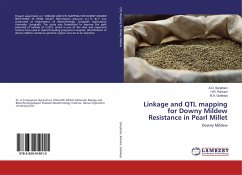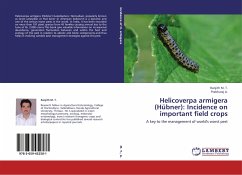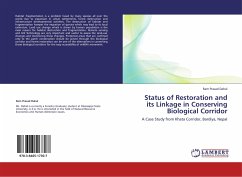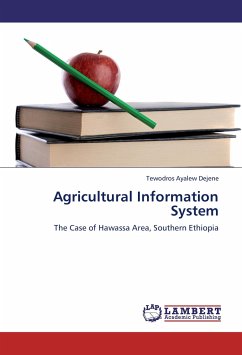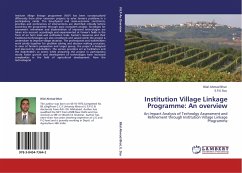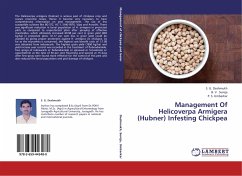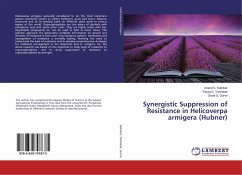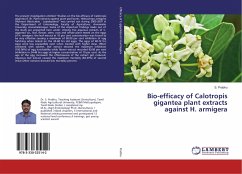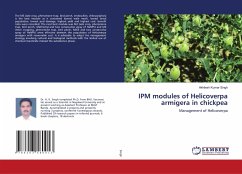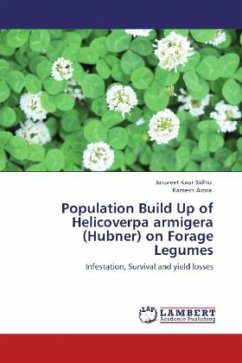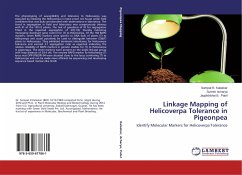
Linkage Mapping of Helicoverpa Tolerance in Pigeonpea
Identify Molecular Markers for Helicoverpa Tolerance
Versandkostenfrei!
Versandfertig in 6-10 Tagen
41,99 €
inkl. MwSt.

PAYBACK Punkte
21 °P sammeln!
The phenotyping of susceptibility and tolerance to Helicoverpa was executed by releasing the Helicoverpa in insect proof net house under field conditions that was duly corroborated with observations in laboratory. The trend in segregation in field and laboratory was conspicuously obvious with 91 of the 130 F2 plants. The test of goodness of fit for segregation fitted in the expected segregation of 3(T):1(S) thereby indicating monogenic dominant gene control for (T) to Helicoverpa. Of the 160 RAPD markers, Seven RAPD markers were specific to DNA bulk of plants (T) to Helicoverpa and could putat...
The phenotyping of susceptibility and tolerance to Helicoverpa was executed by releasing the Helicoverpa in insect proof net house under field conditions that was duly corroborated with observations in laboratory. The trend in segregation in field and laboratory was conspicuously obvious with 91 of the 130 F2 plants. The test of goodness of fit for segregation fitted in the expected segregation of 3(T):1(S) thereby indicating monogenic dominant gene control for (T) to Helicoverpa. Of the 160 RAPD markers, Seven RAPD markers were specific to DNA bulk of plants (T) to Helicoverpa and could putatively be used to distinguish between (S)&(T) plants to Helicoverpa. They exhibited dominant inheritance for Helicoverpa tolerance and evinced 3:1 segregation ratio as expected indicating the relative reliability of RAPD markers in genetic studies for (T) to Helicoverpa in pigeonpea. The seven markers were present on the single linkage group with map distance of 29.4 cM. The nearest RAPD marker to Helicoverpa (T) locus was OPP-07&OPI-04 were situated close to the locus conferring (T) to Helicoverpa and can be made more efficient be sequencing and developing sequence based markers like SCAR.



